Classical music embodies revolution and tradition, a duality most visible in New York City, where the barriers between high art and street-level creativity blur into beautiful new forms. In this crucible of cultural transformation, ETHEL emerged in 1998 to become something more vital than just another string quartet. Since then, they've premiered over 250 works, each performance adding new phrases to an expanding musical tongue that speaks to both classical traditions and contemporary life.
At the center of this evolution stands cellist Dorothy Lawson, whose journey traces an arc from the Toronto Symphony Orchestra through Vienna's gilded halls into New York's raw experimental scenes. Her path winds through collaborations with Mikhail Baryshnikov's White Oak Dance Project and Bang on a Can All-Stars, each experience layering into an artistic perspective that would crystallize in ETHEL's genre-dissolving vision. These seemingly disparate musical worlds—the precision of orchestral performance, the physicality of dance accompaniment, and the freedom of experimental composition—merge into something entirely new but welcoming to a diverse listenership.
Music becomes vital when it reaches beyond concert halls to touch real lives and build genuine connections. ETHEL's approach transmits this truth, inviting partnerships from jazz legend Ron Carter to Indigenous artist Robert Mirabal. Through Lawson's eyes, this quarter-century journey reveals itself as a meditation on how classical music can reconnect with its essential role in human culture: building community, fostering dialogue, and helping us understand each other across all kinds of distances.
Dorothy Lawson of ETHEL was recently Lawrence Peryer’s guest on the Spotlight On podcast. In their wide-ranging conversation, Lawson shared insights into ETHEL’s 25-year story, perspectives on New York’s cultural ecosystem, and thoughts on classical music's role in building community and encouraging cultural dialogue. Lawson also spoke about a very special event: ETHEL and renowned jazz bassist Ron Carter in concert together at Carnegie Hall. You can join them on March 13 as they perform arrangements of Thelonious Monk (that Carter originally played on the Kronos Quartet album Monk Suite) and other musical selections.
You can listen to the entire conversation in the Spotlight On player. The following transcript has been edited for length, clarity, and narrative flow.
Put Your Foot on the Street and Start Walking
Lawrence Peryer: Well, thank you for making time. I think you might be the busiest cellist in show business. (laughter)
Dorothy Lawson: No, I don't think so. If you know the New York scene, it's a tribe. We do a lot of that. That's where ETHEL began. That's what we grew out of—this beautiful, crazy mix of cultures and styles and opportunities and media—and allowing that to be an inspiration.
Many people find it just too much. They’d rather have a more dependable environment. But in New York, if you enjoy and benefit from it, you will have opportunities like no other. You’ll gain a range of experience and connections, and these relationships have meant everything to me.
Lawrence: You’ve already touched on many of the themes I wanted to discuss with you, but one that strikes me right off the bat is that ETHEL seems to me to be a uniquely New York phenomenon. Not that it couldn’t happen anywhere else, but in line with what you were just saying, New York represents such a confluence of creative music, jazz, contemporary pop, and, of course, the institutions there.
Dorothy: Absolutely. What grounded me in New York and made me fall in love with it is that it’s less xenophobic than many places. You are as much a New Yorker the moment you put your foot on the street and start walking. We expect that there will be engagements where we don’t understand each other’s languages or come from different religious perspectives. People have their feelings about that, but we tolerate everybody. We tolerate each other, and I think a human environment can exist.
Lawrence: I saw the announcement of your show in the spring with Ron Carter. Congratulations.
Dorothy: One very special show. I've known Ron for about twenty-five years because one of his projects is his jazz quintet with four cellos up front. He calls it his Nonet, the Ron Carter Nonet, and I've been one of those cellists for a very long time and loved it.
Ron is the most amazing, lucid, generous, genteel, elegant, brilliant musician. He continues to perform in this phase of his life—he’s now eighty-seven. He travels—he even did a tour to Japan just a couple of months ago. He advises and supports younger artists wherever possible and is on ETHEL’s board. He is a steady contributor of energy, information, and ideas.
When we proposed that we do an event playing with him and make it our benefit for this year—this will be a benefit concert to support ETHEL, to help us keep our lights on—he was delighted. And he's the one who came up with the program: music that he recorded forty years ago with the Kronos Quartet when they were first building their brand. They did a series of records with eminent jazz musicians, and the one they recorded with him was arrangements of music by Thelonious Monk.
So, it is one concert at Carnegie’s Zankel Hall, the downstairs medium-sized venue. It will be on Thursday, March 13th, at 7:30 p.m.
Lawrence: Yeah, that sounds wonderful. Did I read correctly that this is ETHEL's first time playing Carnegie Hall?
Dorothy: Yeah. I think ETHEL has been, in a way, too populist for Carnegie right from the beginning. Our music, composers, and style are deeply related to rock, pop, jazz, and world music. And we weren't standing on ceremony. We felt that the historical string quartet canon and the composers who followed that path were already very well represented, and they had many of the best performers in the world continuing that tradition.
We felt that our opportunity was to perform music by people who had been pushed aside, but their music wasn’t as accepted in academia. Of course, they’ve won their places—since then, they have won their places. We just found that very exciting.
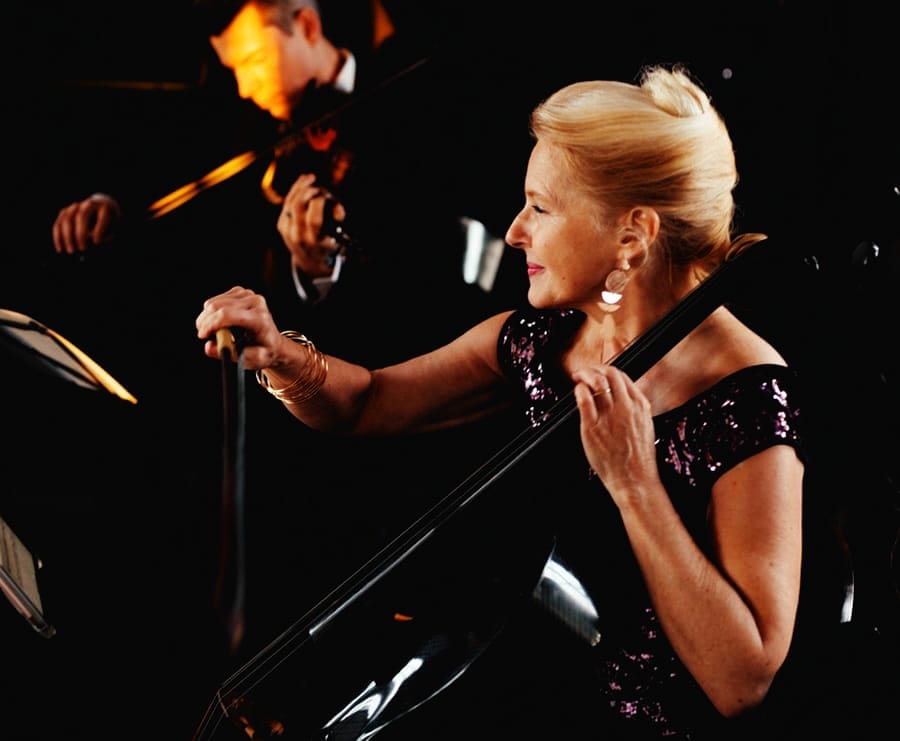
Among the Early Adapters
Lawrence: How did the quartet initially come together?
Dorothy: Early on, we had two opportunities at the same time. One was a recording project; they had approached one of the original violinists, Todd Reynolds. So he brought in this group, which he thought would be fabulous for this. It was a jazz recording.
Simultaneously, John King went to the other violinist in this group, Mary Rowell. He and Mary had known each other for years and years, and it was blues-based music that Mary brought to the same group. So that was kind of fun. We just thought, "Hey, we like each other. This is going to be good."
Lawrence: Was anything in particular responsible for shaping ETHEL's artistic vision, and how has it changed?
Dorothy: The twentieth century had driven classical music into very specific academic corners. Composers made reasonable livings in academia, but one of the side effects is you have to publish and defend your reputation among your peers. They were becoming more and more self-referential and less sensitive to audience interest.
I played twenty years of music that was very hard to relate to. It was exhausting because you're not getting a warm response to your performances, and I think it was misguided. What was happening at the end of the twentieth century was that the economics underneath was breaking down. The audience sort of said, "I don't get it. I don't relate to it. I don't need to spend this money."
At that moment, we were among those early adapters. We wanted to play music with popular references and colloquial musical language. When we began, that original foursome, we didn't have a full calendar. We had done a couple of events, and we loved them. We started telling composers, "Hey, we're doing this thing." We got some coaching from a theater director, Gideon Schein, who started giving us experienced advice about running a company.
One of the things we developed with him was a manifesto of who we wanted to be. It wasn’t only about music. We had lots of other experiences with other performance art forms. We tried to embed that in our thinking, our statements about ourselves, that we could do anything. Everybody in the group could bring their ambitions into the center, and we'd all deal with it.
And the current membership—of course, we have four generations in the group. I'm the oldest; I've always been the oldest. Ralph Farris, my other co-founding member, is the next, and then we have the two violinists. And so we've got me in my sixties, my colleague in his fifties, and then the violinists, one in his forties, one in his thirties.
The worldviews are so different and interesting, and we do have to spend time visiting and talking and reacquainting ourselves with each other, just as life continues to give us new challenges, thoughts, and opportunities. This membership is now ten years old, the longest ETHEL we've ever had, and I think it is newly mature and can carry statements and musical phrases, musical projects much deeper than we have in the past.

Lawrence: One could almost imagine an alternative universe where "high art" was in popular consciousness through figures like Bernstein, Itzhak Perlman, or even Baryshnikov. A piece in The New York Times today about "Is Mikhail Baryshnikov the last high art superstar?” sets him in that lineage of people who could transcend popular and esoteric.
Dorothy: Oh, for sure. And justly so. This relates to my age, my parents, and the generation I grew up with—they had lived through the Second World War. And there was that kind of burst of abundance after the Second World War. But there was also a lot of PTSD. People were traumatized. It was a terrible conflict. It affected families worldwide. I don't know if there were families anywhere that weren't touched by it.
There was a kind of despondence after the Second World War that maybe it would happen again. People almost thought, "When will the third one happen?" I have come to believe that this super sacred, reverential environment that we've created for classical music was a healing technique.
People were worried and scared, and there was that thought that humanity was at its nature so bad, so evil, so destined to continue these warring and self-annihilating habits that humanity was bad, just evil. These were temples of a different belief, restoring the faith that humanity could also do the highest good.
For many of us, the high, gorgeous art of museums, fine performances, and great music was something to hold on to and believe in. I think that's where you might find that environment—where the old guard would be offended if young people came in and weren't reverent. If you weren't dressed right and didn’t sit quietly, listen, and applaud at the right moment, that was such a highly quoted set of conditions. The most sympathetic explanation I've come to is that it was restorative and helped people feel good about who we are and what we're destined to do.
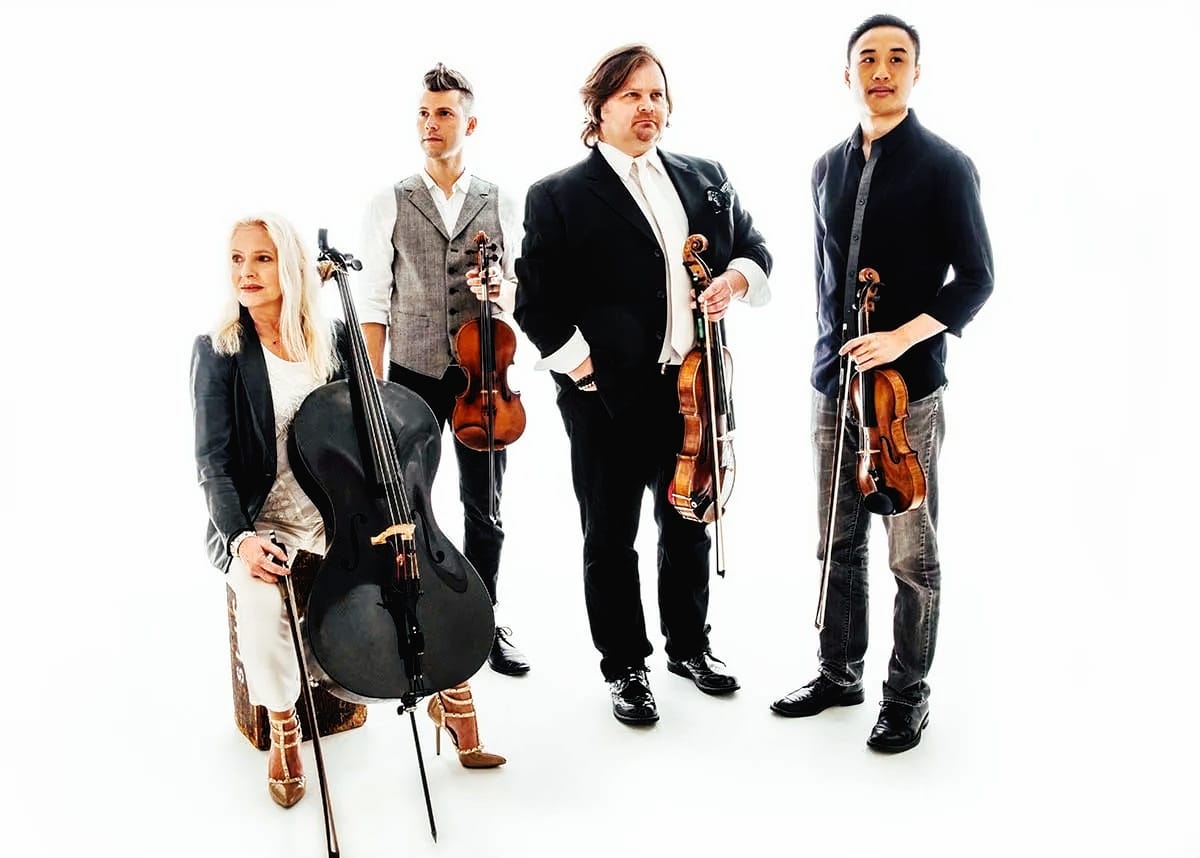
Based on What We Enjoy Doing
Lawrence: Could you tell me about your residency at the Metropolitan Museum's Balcony Lounge? It strikes me as particularly intimate.
Dorothy: It has been priceless. We have music at the Metropolitan Museum every weekend during its late opening hours, on Friday and Saturday nights. There’s a cafe or a bar on the balcony right over the main entrance doors. You can hear it when you walk into the museum—there's music happening, and it's right over your head.
We program it, actually, and we play it as often personally as we can. But we also book other great artists who do their music, and it's loads of fun. It was also a huge insight on the part of the museum that this was going to be an art moment, an art space, not just background music. So it's more like a cabaret.
That's one of the things for musicians that I think is hard to imagine, but our product, our art form, has to be sat with. You need people to spend time with you because you can't imagine a piece of music just by its title. But if you can get people to sit with you, spend time, get familiar with your vibe, and talk to you for a minute, a different level of connection happens.
We've tried programs there to build the music we needed to learn. And we've tried it out, got good at it at the museum, and then took it to the concert halls. The sheer time on the bandstand makes a gigantic difference to a performer.
Lawrence: You've discussed your approach to choosing repertoire and collaborators. Could you elaborate on how ETHEL makes these decisions collectively?
Dorothy: In those rare eventualities, we have long conversations about things. We just reach an agreement. People just need to fully express what they’re concerned about, worried about or don't relate to.
We used a number-grading system for the applications for our commissioning projects because the composers submitted biographies and work samples. These samples gave us a picture of their style, perspective, and approach. We then numbered our choices and tabulated the numbers. So, the numbers could be more nuanced than just yes or no. It was one to five or something like that. Then, we took the top few, talked about them, and decided.
It's never perfect, and we never want anyone to imagine that we think of this as a value system. It's not grading. We're not grading anybody. We’re just agreeing on what music we want to play. It's not about how good a composition is. We have received applications supported by very classical materials, and we just said, "It's just not our range. It's not what we do. It's not what we're good at." And so we feel fairly confident about that process because it's only based on what we enjoy doing.
Lawrence: Something that I love about the state of creative music and that I think ETHEL manifests is that notion of almost like post-genre or pan-genre. You could say it in many different ways: the blending of uptown and downtown.
Dorothy: Well, yes. Following my argument that I believe the big hurdle around the millennium was largely economic, there were restraints on the system that said, "No, no, no. If we allow too many voices, if we allow too many colors, if we let these reprobates over here who are writing jazz and rock-based music, if we let them in, there won't be as much for the rest of us."
As I say, ETHEL was among that early wave, that first wave that just breached the wall, and that’s our opportunity. Then, the wave was gone, the wave passed, and it became normal. I do think that since 2000, the media has wildly expanded, and it was something that had to happen.
And, of course, we work substantially with people from other cultures. We want to be that agent of connection and communication, understanding each other better. We are focusing more and more on that particular activity. We travel and meet people in their home environments, and we ask them to please let us experience a little bit of what music is in their lives.
It's very unusual for people to locate music as a practice for experts and pay experts to do it. In almost all cultures, it's just something you do yourself. It's something you do at home. It's not an expertise; it's a birthright and a necessary practice. It's something that people do to stay sane, communicate their love and sadness, and heal each other. We've embraced that idea of the applied art, something that you just use because it's good for you.
Lawrence: Given your experience bridging different musical worlds, what do you see as ETHEL's role in the future of classical music?
Dorothy: My dedication is that this should be an ecosystem in which whoever gets to play with this beautiful tool we’ve built can do their best work with it. The offering, the product, will continue to reflect the specific talents and worldviews of the group at the moment.
We've learned that music isn't just about technical excellence or historical preservation—it's about connection, about creating spaces where people can come together and share experiences. When working on new pieces or collaborating with other artists, we always think about strengthening that connection and making the music more accessible without compromising its integrity.
The future of classical music isn’t about maintaining barriers between “high” and “low” art but about finding ways to make these incredible musical traditions relevant and alive for contemporary audiences. That’s what ETHEL has always tried to do—we’re not trying to tear down the classical world; we're trying to open new doors.
Learn more about Dorothy Lawson and ETHEL at ethelcentral.org and follow ETHEL on Facebook, Instagram, and YouTube. Purchase ETHEL's music from Bandcamp or Qobuz and listen on your streaming platform of choice.
Check out more like this:
 The TonearmLawrence Peryer
The TonearmLawrence Peryer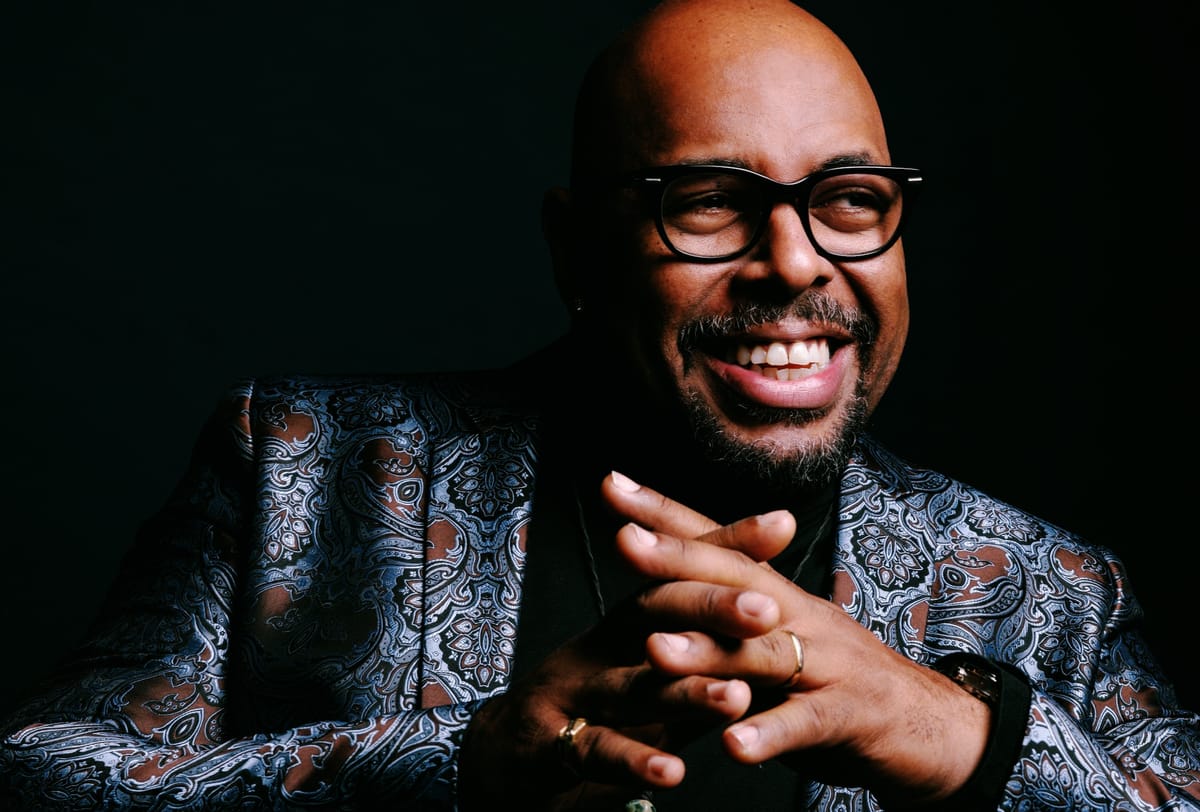
 The TonearmLawrence Peryer
The TonearmLawrence Peryer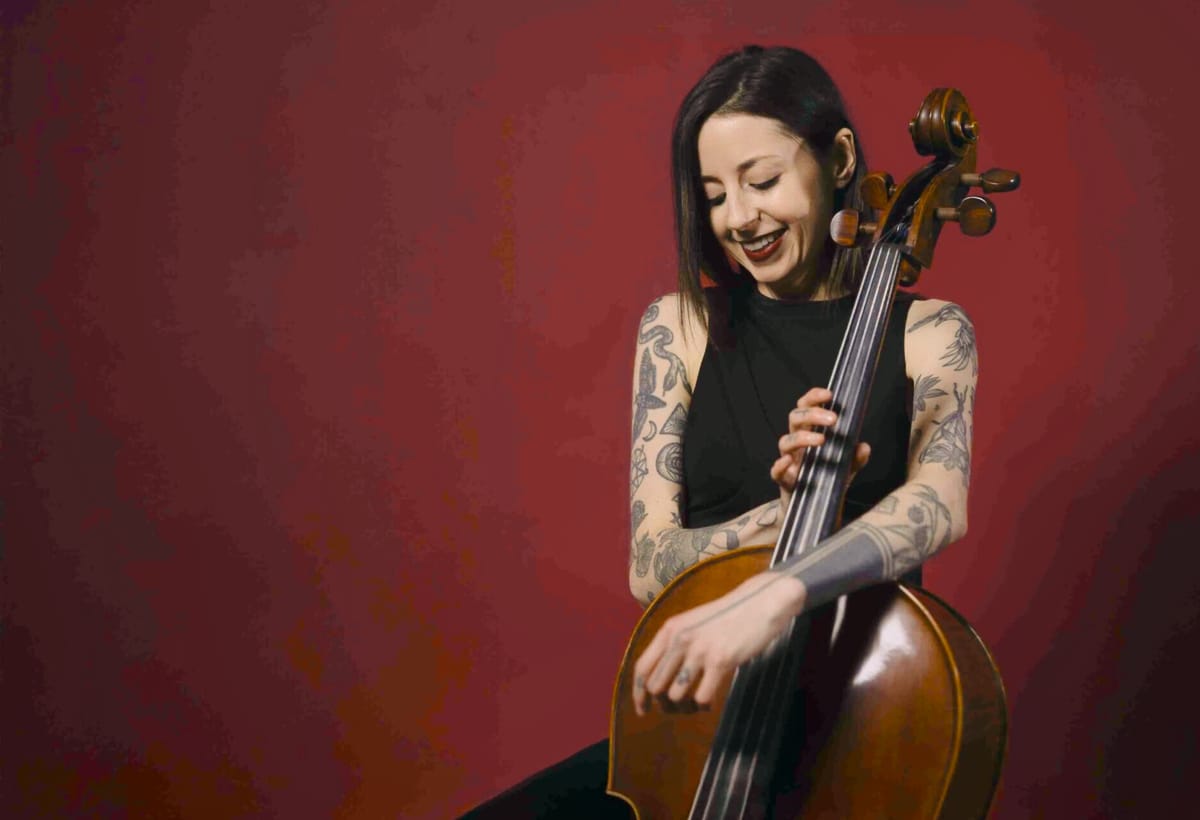


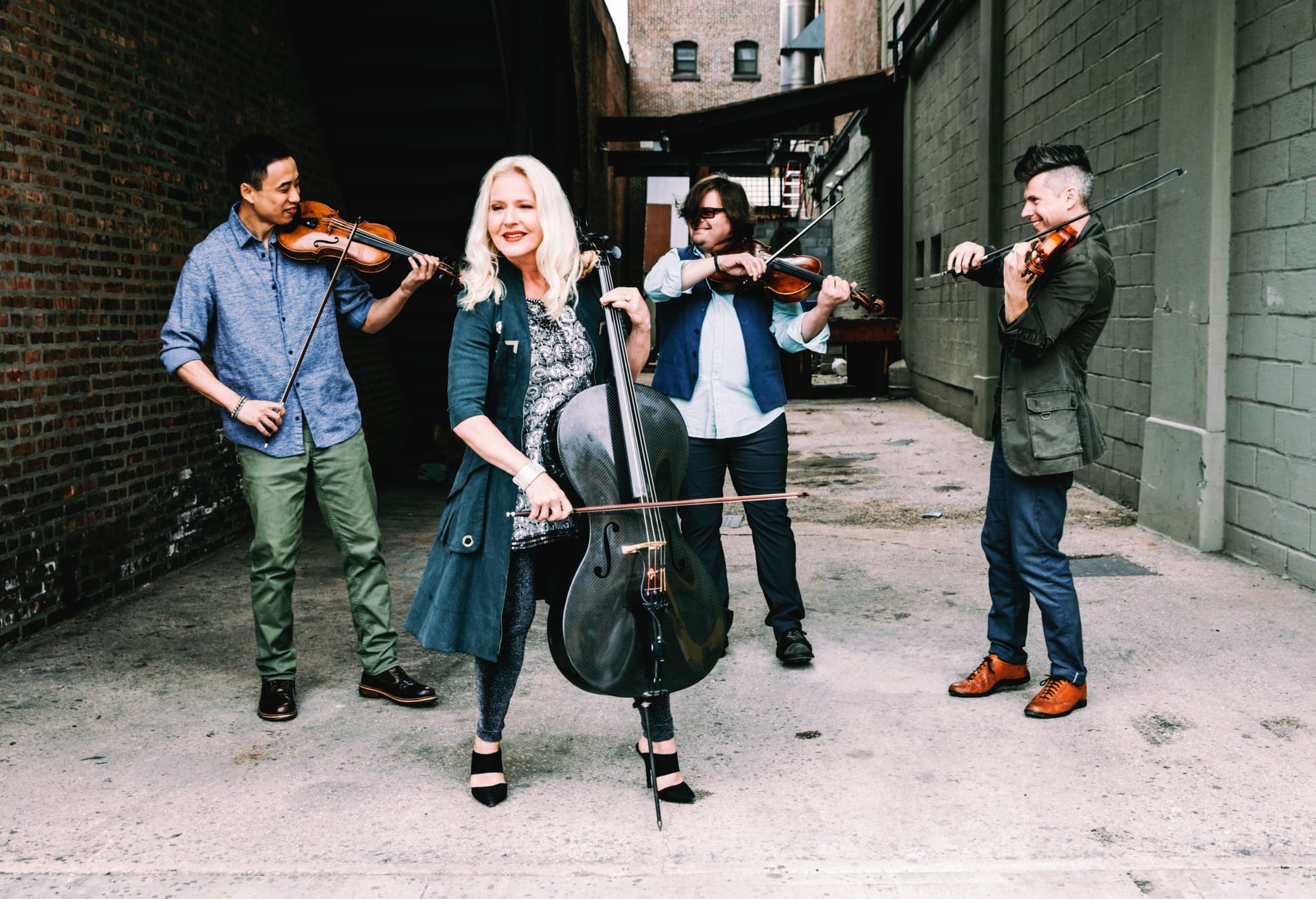



Comments